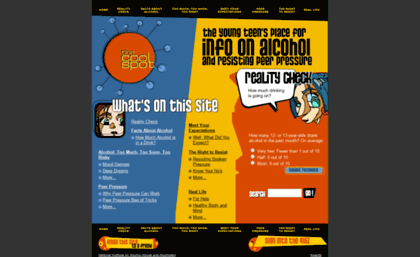Critical Reflection on Sources and
Blog
The
Topic that I chose to create a resource based blog is Alcoholism, with
particular focus on Adolescent Alcoholism and group support to combat it. Alcoholism
and substance abuse among teens has become a serious problem in recent decades,
where 21% of Youth from grade 7 to 9 have drank alcohol every month for the
past year in 2008, (Hammond et al. 7) which is a shocking high number of
adolescents participating in alcohol consumption. In addition, adolescents from
low income households, those that are struggling in their studies or those who
are more susceptible to risk taking activities are more likely to consume
alcohol on a larger scale than those who do not face these types of factors (France 320).
Therefore these resources (such as SMART recovery and Alcoholics Anonymous) are
meant to help combat the increase in alcoholism among teenagers and
adolescents, by giving resources and supports in order to combat the spread.
Furthermore, the other resources found on the blog are meant for preventative
action, meaning it warns and explains what alcoholism in and the dangers
associated with it (Such as the Cool Spot and Project Know).
Luckily,
the topic itself is a known problem in Canadian and American societies,
therefore many studies and resources that are well known and obscure have been
released and published, meaning there is a very large variety of resources
available, making it much easier to seek help for alcoholism than for any other
type of drug or substance. This large variety of resources would be the topic’s
greatest strength, as both adolescents and adults can access these resources
that would help those seeking to sober up. Another strength seen here, is that
some of these resources have government funding and government backed research,
meaning that they have professional funding and backing that would help those
who seek that kind of help. And lastly, these resources are all accessible
online and some like Alcoholics Anonymous and SMART recovery have a human
component to it as well, meaning the person struggling with alcoholism can get
positive reinforcement from his peer support group, which is an effective
method of combating alcoholism and achieving sobriety.
However,
there are some challenges to this topic as well. Due to the vast amount of
resources available on the web and in print, it can get difficult to sift
through these resources to find an effective solution to combating a person’s
alcoholism, since there are no universal methods that are 100% effective
(therefore what works for one person, may not work for the next). This massive
amount of resources and their presumed effectiveness made it difficult to choose
what resource to recommend and which one to ignore. Due to this, it makes it
difficult to assess how effective these resources would be on the target
audience, but seeing as how many of these resources are either preventative or
supports geared towards adolescents, it can be said that most of them would be effective
at helping the adolescent achieve sobriety. At the end of the day however,
these resources (especially the group support ones) are able to help identify
the core problem that made the person turn to alcohol, and provide support in
order to fix that problem through positive reinforcement, inclusivity and in
some cases, financial support.
Works Cited List
France, A. “Towards a Sociological Understanding of Youth and their
Risk-taking”, Journal of Youth Studies, 3:3, 317-331. (2000).
McBride Murray, T. "Neighborhood
Poverty and Adolescent Development". Journal of Research on Adolescence,
21(1), 114 – 128. (2011).




